Crime Data Suggests Security Industry’s Continuing Success
The electronic security industry’s success is tightly linked with the public’s sensitivity to crime. The ability to sell systems and services that provide piece of mind is directly dependent on both real and perceived threats to people and property. How the public perceives such threats is largely the result of the media as well as data provided by the federal government.This is why the Federal Bureau of Investigation’s Uniform Crime Reporting (UCR) and the U.S. Department of Justice’s National Crime Victimization Survey are important to electronic security dealers.
Based on the FBI’s recently released UCR statistics for 2002, overall crime has continued to drop over the last decade. In fact, the 2002 volume was 16 percent lower than the 1993 volume.
Specific to property crime, statistics show that the estimated volume decreased 14.5 percent over the last 10 years. Similarly, the Bureau of Justice Statistics’ Crime Victimization Survey for 2002 shows that property crime dropped from 167 per 1,000 in 2001 to 159 per 1,000 in 2002.
From 1993 through 2002, the household burglary rate fell 52 percent.
Other UCR findings:
- There were an estimated 2.2 million burglaries in 2002, a 1.7-percent increase over the 2001 number. The burglary rate was estimated at 746.2 per 100,000 in population, an increase of 0.6 percent over the 2001 rate.
- Losses due to burglary totaled an estimated $3.3 billion in 2002, with an average value of $1,549 per offense. The majority of burglaries, 65.8 percent, were residential in nature, and 61.7 percent of these occurred during daytime hours.
The overall downward trend in property crime, which began in the 1970s, is partially the result of the market penetration of security systems. The electronic security industry rightly takes credit for the continuation of property crime’s decline. After all, as penetration rates continue to rise, crime statistics continue to fall.
However, given the close relationship between the government’s annual data, the public’s perception of crime and the sale of security systems and services, such positive developments on the crime front could amount to negative repercussions in security sales.
Generally, less crime equals more piece of mind for the public, and the less mindful the public is of real or perceived threats, the less likely they are to invest in security systems and services.
Security industry statistics continue to show annual growth, so there is no need for immediate concern. However, the increasing implementation and effectiveness of electronic security systems coupled with the technology’s increasing affordability could someday result in the saturation of the security marketplace. Although decades away, today’s crime statistics suggest that this development is possible and foreseeable.
CSAA Annual Meeting Another Big Hit
The Central Station Alarm Association (CSAA), Vienna, Va., recently held its annual meeting in Lanai’, Hawaii“The meeting was very successful. In terms of attendance, we had some 300 people, which is a substantial increase from the 175 people we had nine years ago,†says Stephen P. Doyle, executive vice president, CSAA.
CSAA hosted the leadership of some of the major and industry-related organizations, including the International Association of Chiefs of Police (IACP), the National Sheriffs Association (NSA), the Door and Hardware Institute, the National Burglar & Fire Alarm Association (NBFAA), and Underwriters Laboratories (UL).
Representatives from leading electronic security industry firms, such as DICE Corp., GE Interlogix, Bosch Security Systems, Bold Technologies Group, and others, described where their respective companies are headed.
According to Doyle, the organization continues to move in the right direction. He cited successes CSAA has had in continuing to recruit new members, creating new alliances, and developing more educational initiatives.
Doyle says that CSAA’s online distance learning program for central station operators is especially notable. The program is being well-received domestically as well as in Canada and Mexico.
Doyle also cited successes on the false alarm front. With the continuing issue of alarm non-response, a panel of experts discussed proven strategies to decrease the number of false dispatches.
“Because non-response is a problem in some areas and not in others, many of our attendees were surprised at how important this issue has become. The issue was not that high on their radar screens,†Doyle says. “However, the developments in Las Vegas and Los Angeles are major. We sent many back with this message and how we are making headway with software and other solutions.â€
CSAA also unveiled a new logo during its annual meeting. A companion logo with “MEMBER†clearly stated above the CSAA logo also was developed.
Overheads are available at CSAA’s web site: www.csaaul.org.
Broadband CPE Revenue Forecast
According to In-Stat/MDR (www.instat.com), most broadband service providers have developed or are developing a gateway strategy, allowing them to tier their services for those who want a richer set of services. As a result, residential gateways with higher degrees of intelligence, network management capabilities and network bridging will increase from 3 percent of the market in 2003 to one-third of all devices shipped in 2007. In-Stat/MDR estimates that the total Customer Premise Equipment (CPE) broadband market will peak at $5.1 billion in 2003.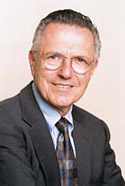
Security and the Law: Does a Premises Owner Owe Duty to an Invitee?
by Lessing E. GoldAn interesting case regarding the liability of a premises owner to an employee of a security guard company was decided recently by the United States Court of Appeals for the Eastern District of Michigan.
The security guard company contracted to provide security services to the defendant, DuPont Automotive. The plaintiff was working as a security guard for the Company at the defendant’s paint factory. While on duty, the plaintiff suffered an injury resulting from a massive paint spill.
After the spill the defendant instituted emergency response procedures, whereby its internal fire brigade donned protective gear and entered the spill area. The Company was obligated to follow its site post orders, which specify that in the event of a spill, “security does not respond to the scene of a spill.†When the security guard entered the area of the spill to deliver the report, he was not wearing protective clothing, nor was he breathing through a respirator. The employee became dizzy and claimed that that night he began hallucinating. He subsequently got into an automobile accident, after which he was transported to a nearby hospital, where he was initially diagnosed with reactive psychosis.
The District Court, in granting summary judgment in favor of the defendant, DuPont, held that in order to establish a claim for negligence, the defendant owed a duty to the plaintiff, and the defendant breached the duty. The employee was a business invitee and therefore a duty did exist. However, a premises owner has a duty to warn invitees only of known dangers or dangers that should have been known through the exercise of reasonable care, which the premises owner understands or should have understood.
The Court of Appeals concurred with the ruling, holding that the defendant did not breach its duty as the defendant had no reason to know that failure to provide protective gear would present a risk to the plaintiff. The defendant reasonably believed that as a security guard, the plaintiff would not respond to the scene of the spill. Thus, the defendant had no reason to believe that these dangers posed an unreasonable risk of harm to the plaintiff, and therefore the defendant did not breach its duty by failing to give the plaintiff warnings. With respect to proximate cause, the court indicated that no reasonable mind could find that it was foreseeable that the plaintiff would suffer an acute psychotic break and ultimately, schizophrenia, as a result of the defendant having left the door to the spill area open.
Lessing E. Gold, of Mitchell, Silberberg & Knupp, is counsel to the California Alarm Association

Shell Announces Launch of Shell HomeGenie
Shell Oil Co. has announced plans to launch Shell HomeGenie, an integrated home management solution, in early 2004. Shell HomeGenie is a home management system that provides consumers with simple, web-based remote access of household systems and devices through a home-computer broadband connection to the Internet.Shell HomeGenie allows homeowners to remotely access most household heating and cooling systems through the web-enabled Shell HomeGenie Programmable Thermostat enables control of lights and select appliances through the Shell HomeGenie Power Switch, and permits monitoring of select areas in their homes through the Shell HomeGenie Wireless Camera that incorporates a motion sensor. Users can control these devices remotely through most personal computers or cellular phones with Internet access.
Shell partnered with leading hardware manufacturers to develop the Shell HomeGenie system, including Motorola Broadband, Sun Microsystems, and Xanboo, a leading provider of Internet-enabled devices and technology.
Shell HomeGenie is initially expected to be available for purchase in early 2004 in limited areas through retailers, as well as directly on the Shell HomeGenie web site, with plans for expanded distribution in other regions and nationwide later next year. The Shell HomeGenie web site will also be released in early 2004, shortly before the product launch.
GE Interlogix Partners with Top Home Builder
GE Interlogix, North St. Paul, Minn., announced an agreement with Toll Brothers Inc, a leading builder of luxury homes. This agreement designates GE Interlogix as the exclusive provider of security equipment and a preferred provider of structured wiring equipment for Toll Communities.Toll Brothers has standardized on the GE Interlogix Concord Express security control system and has authorized use of the Smart ConnectionCenter as one of the preferred structured wiring products in its homes. In turn, GE Interlogix provides Toll Brothers with sales collateral as well as demo systems for model homes.
The ConnectionCenter is a line of structured wiring products, which includes a central distribution panel and the essential wiring infrastructure for Internet sharing over a home Ethernet. Telephone, data networking, home control, audio/video, and security are also included in the single integrated system. Over 40 percent of new homes constructed today are built with structured wiring systems.
Westminster Security is a wholly owned subsidiary of Toll Brothers Inc, providing central station alarm monitoring services exclusively to Toll Brothers home buyers.
Safety Under a Steeple
During CSAA’s 2004 annual meeting, a group of meeting participants and their spouses attended the local Catholic church, Sacred Hearts of Jesus and Mary Church, Lana’i City, Hawaii. At the end of the service, the Reverend Raymund Ellorin asked for donations “especially from the visitors†towards the rewiring of the parish buildings.The church had recently had a fire caused by faulty wiring.
Later that Sunday, Ron LaFontaine, a CSAA past president, asked Mark Hillenburg and Gary Kallman, both of DMP, Springfield, Mo., to donate the necessary equipment to install a fire alarm system in the parish buildings. Further, Robert Bean of Alert Alarm of Hawaii, the largest alarm dealer on the Hawaiian Islands, agreed to install the system at no charge. Art Black, principal of Carmel Fire Protection, who was familiar with the alarm procedures in Maui County, agreed to help with its certification.
The next day, at the meeting’s general session, LaFontaine “passed the hat.†Thanks to CSAA members and their guests, an additional $1,246 was donated to the Reverend Ellorin.
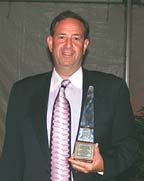
Sevinor Receives Stanley Lott Award
Without a doubt, one of the most active and hardworking CSAA members in the last few years has been Ralph W. Sevinor. After stepping out as CSAA president in 2001, he continued to dedicate many hours to the new Central Station Operator Training, Level One project, to assisting former CSAA president Mel Mahler in many other projects, and to contributing in his many committee memberships.Sevinor’s dedication to CSAA, its members and the industry was recognized on in October 22, 2003 at the President’s Dinner Dance when he was granted the Stanley C. Lott Award, CSAA’s highest honor.
The award, which is not given every year, recognizes those individuals whose contribution to CSAA and the industry are exceptional.
Stanley C. Lott served as president of CSAA from 1985-1987.
LA Delays Non-Response
In October, The Los Angeles City Council indefinitely postponed implementation of the Los Angeles Police Department’s non-response policy. Under the ordinance, LAPD would not respond to unverified alarms following two false alarms per user per year.The Council requested more research and information as to whether the dispatch system was updated, whether false alarm tracking was updated, and whether police training reflected changes in policy.
Additionally, the Council inquired into the existence of community outreach campaigns, which members argued should inform both city residents and alarm companies about the new policy.
CSAA Elects New Board
CSAA Members elected a new executive committee in October 20, 2003 during CSAA’s annual meeting in Lana’i, Hawaii.Former first vice president Richard L. Sampson, president, American Alarm and Communications Inc., Arlington, Mass., was elected president of CSAA for a two-year term.
Other new executive committee members inclde:
- first vice president: John A. Murphy, president, Vector Security, Mt.
Laurel, N.J.
- second vice president: Bud Wulforst, president, A-1 Security, Las Vegas
- treasurer: Peter Lowitt, president, Lowitt Alarms and Security, New York
- secretary: Robert R. Bean, president/CEO, Alert Holdings Group Inc., Honolulu
- immediate past president: Mel Mahler, president, ADS Security Inc., Nashville, Tenn.
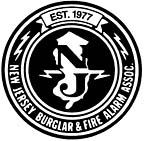
Atlantic City Hosts Major Industry Trade Show
For the 14th consecutive year, the first major security alarm industry trade show of the new calendar year will be presented by the New Jersey Burglar and Fire Alarm Association (NJBFAA) during a two-day convention held on January 8-9, 2004 at the Tropicana Casino & Resort in Atlantic City.In addition to the four-hr. trade show on January 9, NJBFAA will present special programs on such timely issues as: emergency preparedness certification; New Jersey’s anti-terrorism efforts; New Jersey State licensing of alarm companies; construction codes and regulations; and security and fire safety.
There will be other activities both days, including NJBFAA’s annual awards reception and membership meeting, and a reception and dinner at the nearby world-renowned Renault Winery and Tuscany House Hotel & Restaurant.
Since there was no ISC Expo in New York City in 2002 or 2003, this is a good opportunity to see the latest in alarm industry technology and services in the New Jersey metropolitan area. For information call (609)695-4444.

Monitronics Completes Financing
Monitronics International Inc., Dallas, announced that it has recently completed a $500 million refinancing of its debt facilities. This brings the total debt and equity raised by the company since inception to more than $600 million - an increase of more than $100 million over previous levels. The new financing included a private placement of $160 million of senior subordinated notes and a $320 million credit facility.
Some of the proceeds were used to repay Monitronics’ existing bank credit facility and to redeem certain subordinated notes. The balance of the proceeds will be used for general corporate purposes, including the expansion of its customer base through future acquisitions of long-term alarm monitoring agreements from authorized dealers.
The Key to Corporate Security Roundtable
The Security Industry Association announced that David G. Carpenter will be the keynote speaker for the 2004 Corporate Security Roundtable, which will take place February 1-2, at the Doral Resort and Spa in Miami. Carpenter is the vice president of Global Security for PepsiCo Inc.Carpenter’s presentation will address his experiences in the public sector and the differences involved in creating a security program for a large international corporation.
“An exchange of ideas, problem areas and issues encountered during this process can help others potentially avoid the traps one faces in providing a comprehensive security program,†Carpenter says.
SIA’s Corporate Security Roundtable provides an open forum for attendees to speak, listen and exchange, via networking events, conference sessions and roundtable discussions.
“I found the attendees at the previous SIA Roundtable to be among the best informed and qualified security professionals in the nation, and it will be a pleasure to engage them in discussions around best practices in the industry, their analysis of what issues need to be addressed as we move into 2004, and the impact that the Department of Homeland Security has had on their individual programs,†Carpenter says.
Prior to joining PepsiCo, Carpenter was the assistant Secretary of State for diplomatic security at the U.S. State Department in Washington. Carpenter went to the State Department following a 26-year career with the U.S. Secret Service, where he served as the deputy assistant director for White House security, as well as Special Agent in Charge of the Presidential Protective Division.
ADI Dealers Celebrate First Hundred Years of Flight
ADI, Melville, N.Y., and its family of manufacturers, sponsored a gala customer reception at the Smithsonian National Air and Space Museum in Washington, D.C. In commemoration of the first 100 years of flight, ADI’s sales representatives welcomed more than 1,000 customers and over 200 vendor partners to this unique and educational venue during the National Summit on Security.ADI’s guests had the opportunity to visit the museum’s exhibits and enjoy a buffet dinner, beverages and live entertainment. Each guest received a custom brochure that showcased the exhibits along with a welcome note from ADI’s president, Tom Polson. One of the most exciting exhibits was the Flight Simulator Zone, which allowed ADI customers to climb aboard a MaxFlight FS2000 simulator and pilot through a twisting 360-degree barrel roll or complete an upside-down loop.
Learn more at www.adilink.com. Questions or suggestions can be directed to INFO@ADI-DIST.COM.
Dealer-ready Online ‘B-Roll’ Video
ADEMCO, a Honeywell company, has introduced a new online service providing security dealers with video scenes of ADEMCO products in action. This library of broadcast-quality stock footage, commonly known as “B-Roll,†can help dealers create their own TV commercials or promotional videos.Even compressed in the Quicktime format, the file sizes are quite large, so a broadband Internet connection is recommended. Smaller file sizes are available for dealers or video producers to easily preview the footage prior to downloading.
The “B-Roll†collection is available at http://www.ademco.com/dealer_support/ videos/bRoll_5800.htm.
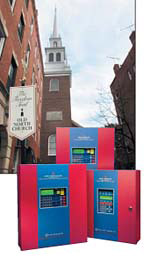
Technology at Work: The Old North Church: A Beacon of Fire Safety
The Old North Church in Boston’s North End knows a thing or two about the power of fire. It was here in this church’s steeple that two lanterns announced to Paul Revere that the British had arrived by sea and the War for Independence was on.The people who work at this Episcopalian church today understand that - just as two lantern flames ignited a revolution - fire also could have a disastrous effect on this treasured facility, with its history, architectural beauty, an active congregation of 150 members, and the hundreds of tourists visiting on a daily basis from all over the world.
Built in 1723, the Old North Church had relied for too long on antiquated fire safety equipment. In fact, up until recently, the four buildings that comprise the church “campus†utilized one outdated “master box†to connect the church to the local fire department.
“I’d be surprised if the black master box they had in their lobby even sounded an alarm,†said Bob Modica, sales consultant for Congress Alarm. With the need to protect two row houses (three floors each) housing the church office and foundation organization, another building that is home to a gift shop, plus the church itself, this facility needed a system that could determine the exact location of a fire.
To modernize their fire safety system, Carl Hoss, the Church’s facilities director called on Congress Alarms, a leading provider of electronic security and fire alarm systems in Massachusetts and southern New Hampshire. Congress’ Modica determined that the church needed a complete overhaul. Modica specified an MS-9200 addressable fire alarm control panel from Fire-Lite Alarms for the main building and a Fire-Lite MS-5024 display annunciator for the gift shop.
The Fire-Lite MS-9200 is a compact addressable fire alarm control panel with a capacity of 198 Fire-Lite 300 Series devices and a single Signaling Line Circuit (SLC) loop, which supports up to 99 smoke detectors and 99 control or monitor modules. The panel uses surface-mount technology and is designed for ease of installation and programming, featuring the latest in fire protection technology, including maintenance alert and automatic detector test.
“An addressable panel costs a bit more than a conventional panel,†Modica explained, “but I felt it was a wise investment for the Old North Church since there are so many different rooms and the facility was difficult to zone by area.â€
The complete life safety system installed by Congress Alarms also included Fire-Lite manual pull stations at every exit and heat detectors in the kitchen, boiler room and basement hall, plus a number of smoke detectors, horn strobes and sprinklers. Fire-Lite M-301 mini modules were used to make the sprinklers addressable, allowing Congress to monitor where sprinklers had been activated and if water had begun to flow.
According to the current sexton, Howard Williams, the church has been thoroughly satisfied with the Fire-Lite fire alarm technology. He recalls, “Once there were people working on the organ and they set off the smoke detector. The fire department arrived in three minutes.†This is particularly impressive given Boston’s infamous traffic snarls. Williams also said that the church was struck by lightning a few years back and the power went out, but the Fire-Lite system switched to battery operation and continued its vigil.
Integrated Airport Building Control
Johnson Controls Inc., Milwaukee, has been awarded the contract to provide integrated building control and security systems for the Midfield Terminal Complex under construction at Southwest Florida International Airport in Fort Myers. The terminal, scheduled to open in 2005, will help the airport accommodate the growing southwest Florida region. The $10 million contract includes security solutions, life safety solutions, lighting controls and premises distribution cabling, as well as maintenance management through summer 2005. Johnson Controls is working as a sub-contractor to Dick Corp., the general contractor on the project.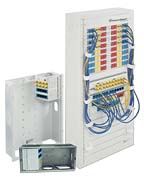
Honeywell Acquires FutureSmart, Olympo Controls
Honeywell, Syosset, N.Y., announced that it acquired the assets of FutureSmart Systems Inc., of Draper, Utah. FutureSmart, a subsidiary of LifeStyle Innovations, Inc., is a provider of digital communications and networking systems for homes, condominiums and apartments.Terms of the agreement were not disclosed and no regulatory approvals were required.
A FutureSmart system consists of a multi-function panel that controls and distributes low-voltage services throughout a home, including security, data, cable and satellite TV, telephony, video, audio, lighting control and HVAC control.
In related news, Honeywell Security Products Group announced it had acquired the businesses of Olympo Controls s.r.o and Olympo Bratislava spol s.r.o, security products distributors based in Brno, Czech Republic, and Bratislava, Slovak Republic. Terms of the transaction were not disclosed.
The companies, which together employ 120 people, distribute intrusion detection, closed-circuit television (CCTV) and access control equipment to security installation companies in both the Czech and Slovak Republics.
Surveillance for Business Management
Remote Business Management Inc. (RBMI) is using remote video transmission to create a business management tool that combines video and video phone line transmission using its RBMiViewer technology. This technology allows business owners and management teams to remotely view the activities of their business locations using standard telephone lines. Business owners install surveillance systems to help against shoplifting, theft and insurance claims. Why not business management, too?RBMi and 3J Tech have developed a new concept to help dealers close more sales and increase MRR. 3J Tech has developed a camera called the Camit, which has the ability to work over the Internet and phone lines. In addition, it can alert the business owner upon triggered events.
The resulting system deters employee theft, encourages employee productivity and prevents loss of profit.
RBMi makes it simple for the business owner to monitor work productivity, customer service and inventory shrinkage. By implementing this simple system, bottom line profits are protected and increased. For more information, visit www.rbmiviewer.com
Tyco Cuts Jobs, Divests Businesses
In November, Tyco International, Pembroke, Bermuda, announced that it is selling more than 50 companies from its global conglomeration. As a result, Tyco estimates that it will cut some 7,200 jobs and consolidate operations at 219 manufacturing, distribution, sales and other facilities.Tyco announced that over half of the divestitures – measured by revenue – will be from its Fire & Security division, which includes companies such as ADT Security Services, Digital Security Controls (DSC), Simplex and Sonitrol.
Combined, the divested businesses represent about 6 percent ($2.1 billion) of Tyco’s revenue base, and the eliminated jobs represent about three percent of its 260,000 worldwide workforce. By 2005, Tyco expects to save $230 million from the restructuring.

Big Demand for GPS Tracking
C3 Location Systems, Boca Raton, Fla., received an order for $2.7 million for its C3 Command Center software and associated GPS tracking devices.The C3 Command Center software is a powerful, easy-to-use platform. Key features include an object-oriented design, high quality-updateable map base, PSAP resource data and operator configurable screens. The company claims that its software is the first open architecture platform that is location-device independent (LDI), allowing a wide range of popular GPS devices to be tracked.
The C3 GPS tracking devices are available to match the needs of many applications and are designed to provide voice and data or data only. C3 location devices include products designed for permanent installation to handheld cellular devices primarily designed for personal and business security. The hardware utilizes a host of complimentary wireless networks matched to the location and needs of the end user.
Casino Upgrades Security, Surveillance
North American Video, Brick, N.J. recently completed a major upgrade of the surveillance systems at the Akwesasne Mohawk Casino in upstate New York. At the heart of the system is a new Pelco DX9000 Enterprise Digital Video Recording System coupled with the Pelco CM9760 Series matrix switching system. North American Video configured the digital upgrade to provide cost-effective management and recording of cameras located throughout the facility.The system can store weeks or months of video, depending on the number of cameras being recorded, directly on the systems’ hard drives for instant retrieval and playback. The storage units use RAID (Redundant Array of Independent Disks) technology. View stations can be distributed on the system’s network to accommodate viewing of live or recorded video. These stations allow simultaneous viewing of live or recorded video, in any combination, from as many as four cameras simultaneously. The user can watch up to three recorded streams, in addition to a live stream from the same camera, while other users on the same network are accessing the very same information.


